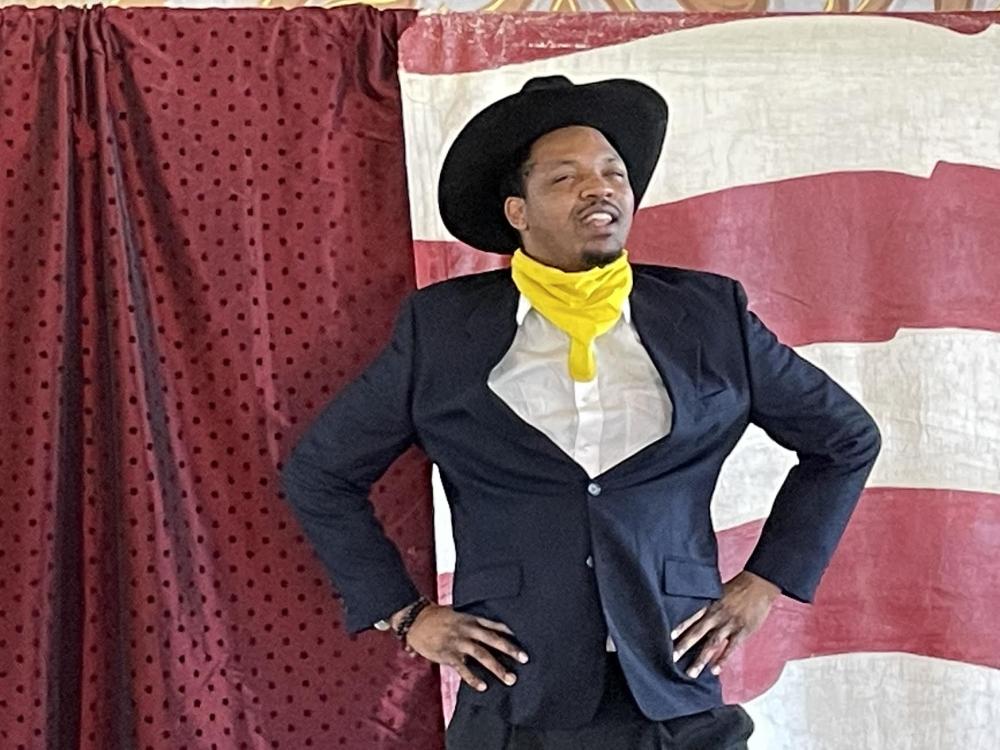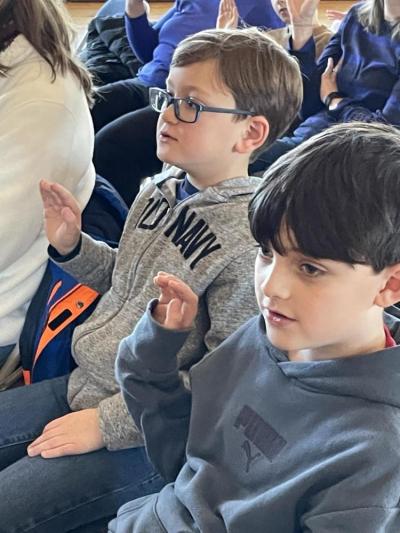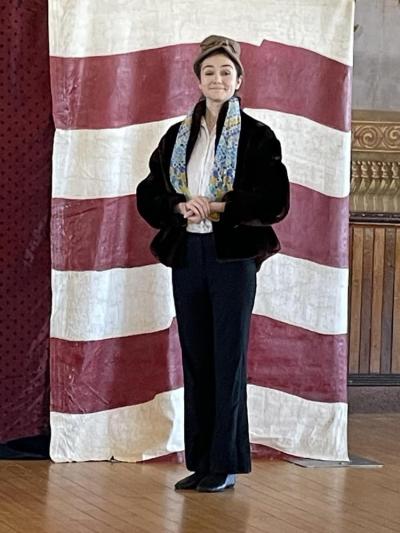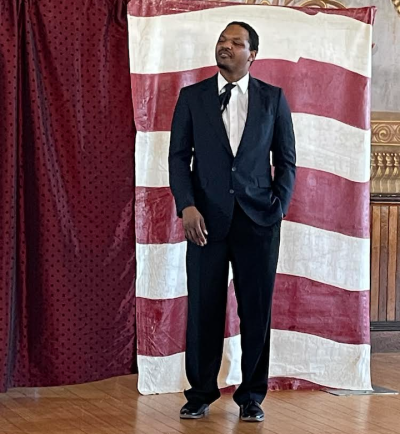‘Americans like you and me changed the world,’ performers share
MIDDLEBORO — In the household of the Confederate White House occupied by Jefferson Davis during the Civil War, Mary Elizabeth Bowser was considered an illiterate, uninformed slave who blended in with the daily activities.
What Davis didn’t know was Bowser was actually a freed slave. She had received an education in Philadelphia and was placed as a worker in his household to serve as a Union spy.
When Davis spoke openly about military maneuvers in front of her, and left important war-related papers on his desk, she passed the information on to contacts for the Union, helping the North win the war.
This was just one example of heroic actions by seemingly ordinary Black Americans that had an extraordinary impact on U.S. history.
Their stories were shared during a production of “Black History Soldiers, Sailors and Spies,’’ which was performed at Middleboro Town Hall Saturday, Feb. 11.
In observance of Black History Month, the presentation was given by Bright Star Touring Theatre, based in Asheville, N.C. and featuring actors Gabe Cain and Skylar Frishman. The performance was sponsored by the Friends of the Middleboro Public Library and the Middleboro Cultural Council.
The performance recounted “stories of some of the greatest Americans that ever lived,’’ from “across the street and across the country,’’ Frishman said.
“It’s important to learn our history so we don’t repeat our mistakes,’’ she said.
Using quick costume changes behind an Americana-themed panel, Cain and Frishman donned different hats and outerwear to portray the stories of a variety of historic Black Americans.
They included:
Charles Anderson, nicknamed Chief, who served as chief flight instructor for the Tuskegee Airmen, a group of primarily African-American military pilots. The men were receiving training but waiting to be called up to active service in World War II, delayed because of doubts by some in segregated Alabama. When First Lady Eleanor Roosevelt, as depicted by Frishman, visited Tuskegee Army Air Field, she asked to be taken on a flight by Anderson. She was impressed and "The Flight That Changed History’’ led to President Franklin Delano Roosevelt calling the men into the skies _ and the pages of history.
John Brown, a middle-class worker in Kansas was confused and angry that his daughter could not attend class with her white neighborhood friends but instead was forced to attend a school for Black students only. His concerns prompted legal action that went all the way to the Supreme Court, where the case of Brown v. Board of Education of Topeka made segregated schools illegal and changed American education.
Col. Charles Young, the third Black graduate of West Point, was the first African American to achieve the rank of colonel in the U.S. Army. In 1918 the Army refused his request to command troops in Europe, saying he was not healthy enough, which Young considered a cover for racism. To prove his fitness, he rode a horse almost 500 miles from Ohio to Washington, D.C. He eventually served as the first African-American national park Superintendent when he and his troops were tasked to manage and maintain Sequoia National Park in northern California.
Cain shared a quotation from Young. "The thing then to be desired above all others is confidence in one's self,’’ he told the audience.
If someone makes light of one’s dreams, ignore them, Cain said. “What matters is a belief in yourself,’’ he said.
Cain also said that, as the historical figures in the performance showed courage in doing what was right, so too can everyone _ by standing up to bullies, for example, or speaking out against injustice.
“It was ordinary Americans just like you and me that helped change the world,’’ he said.

















